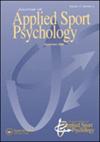Emotion focused therapy with injured athletes: Conceptualizing injury challenges and working with emotions
IF 3.2
2区 心理学
Q2 HOSPITALITY, LEISURE, SPORT & TOURISM
引用次数: 2
Abstract
Abstract Athletes’ emotional responses to injuries may include feeling sad, angry, anxious, frustrated, helpless, irritated, and confused about their identity as athletes. Emotions are central in athletes’ sport injury experiences, yet most therapeutic approaches described in the sport psychology literature are grounded in cognitive-behavioural traditions and strategies may tend to emphasize controlling or suppressing emotions. Emotion Focused Therapy (EFT) is a robust, empirically-supported therapeutic approach grounded in experiential therapy and emotion theory that can be used to help athletes deal with injury-related difficulties. This position paper presents a rationale for using EFT in working with injured athletes. We review foundational principles of EFT and the conceptualization of emotions, emotion regulation, and dysregulation from an EFT perspective. Drawing on EFT theory, we present a conceptualization of five challenges and conflicts that arise within athletes’ injury experiences: (a) attending to the body and listening to the body; (b) tending to the pain versus pushing through pain; (c) interpersonal challenges and conflicts with others; (d) injuries as a challenge to athlete identity; and (e) concerns about time left in career and falling behind. Examples of ‘in vivo’ interactions between therapists and athletes are also presented to bring to life the use of EFT strategies and techniques, and we conclude with directions for future research and suggestions for practitioners to advance the use of EFT within the field of sport psychology. Lay summary: Emotion Focused Therapy (EFT) is a process-experiential, person-centered therapeutic approach that holds promise for clinicians and therapists working with injured athletes. EFT could be used to evoke and experience emotions in therapeutic sessions in order to develop greater acceptance, awareness, and understanding about one’s emotions to facilitate healing and support athletes’ ongoing performance and sport careers.受伤运动员的情绪集中治疗:概念化受伤挑战和情绪工作
摘要运动员对受伤的情绪反应可能包括对自己的运动员身份感到悲伤、愤怒、焦虑、沮丧、无助、愤怒和困惑。情绪是运动员运动损伤经历的核心,但运动心理学文献中描述的大多数治疗方法都基于认知行为传统,策略可能倾向于强调控制或抑制情绪。情绪聚焦治疗(EFT)是一种基于经验治疗和情绪理论的强大、经验支持的治疗方法,可用于帮助运动员应对与损伤相关的困难。这份立场文件提出了在处理受伤运动员时使用EFT的基本原理。我们从EFT的角度回顾了EFT的基本原理以及情绪、情绪调节和失调的概念化。根据EFT理论,我们提出了运动员受伤经历中出现的五个挑战和冲突的概念:(a)关注身体和倾听身体;(b) 处理疼痛与克服疼痛;(c) 人际挑战和与他人的冲突;(d) 伤病是对运动员身份的挑战;以及(e)对职业生涯剩余时间和落后的担忧。治疗师和运动员之间“体内”互动的例子也被介绍出来,以使EFT策略和技术的使用变得生动起来,我们总结了未来研究的方向,并为从业者在运动心理学领域推进EFT的使用提出了建议。概述:情绪集中治疗(EFT)是一种过程体验式、以人为中心的治疗方法,对治疗受伤运动员的临床医生和治疗师来说很有希望。EFT可用于在治疗过程中唤起和体验情绪,以培养对情绪的更大接受度、意识和理解,从而促进治疗并支持运动员的持续表现和运动生涯。
本文章由计算机程序翻译,如有差异,请以英文原文为准。
求助全文
约1分钟内获得全文
求助全文
来源期刊
CiteScore
6.90
自引率
9.40%
发文量
39
审稿时长
>12 weeks
期刊介绍:
The Journal of Applied Sport Psychology (JASP) is a refereed journal designed to significantly advance thought, theory, and research on applied aspects of sport and exercise psychology. Submissions such as experimental studies, qualitative research, correlational studies, case studies, position papers, critical reviews, theoretical developments specific to applied research conducted in sport and/or exercise settings, or having significant applied implications to sport and exercise, are appropriate content for the JASP. Please see the recent Editorial for further details on the aims and scope of the journal. JASP is a non-proprietary journal that is an official publication of the Association for Applied Sport Psychology (AASP). The purpose of AASP is to promote the development of psychological theory, research, and intervention strategies in sport and exercise psychology. The Journal is a direct benefit of membership in AASP and is received by its student and professional members. The publisher of the JASP is Taylor and Francis, Inc. of Philadelphia, PA.

 求助内容:
求助内容: 应助结果提醒方式:
应助结果提醒方式:


